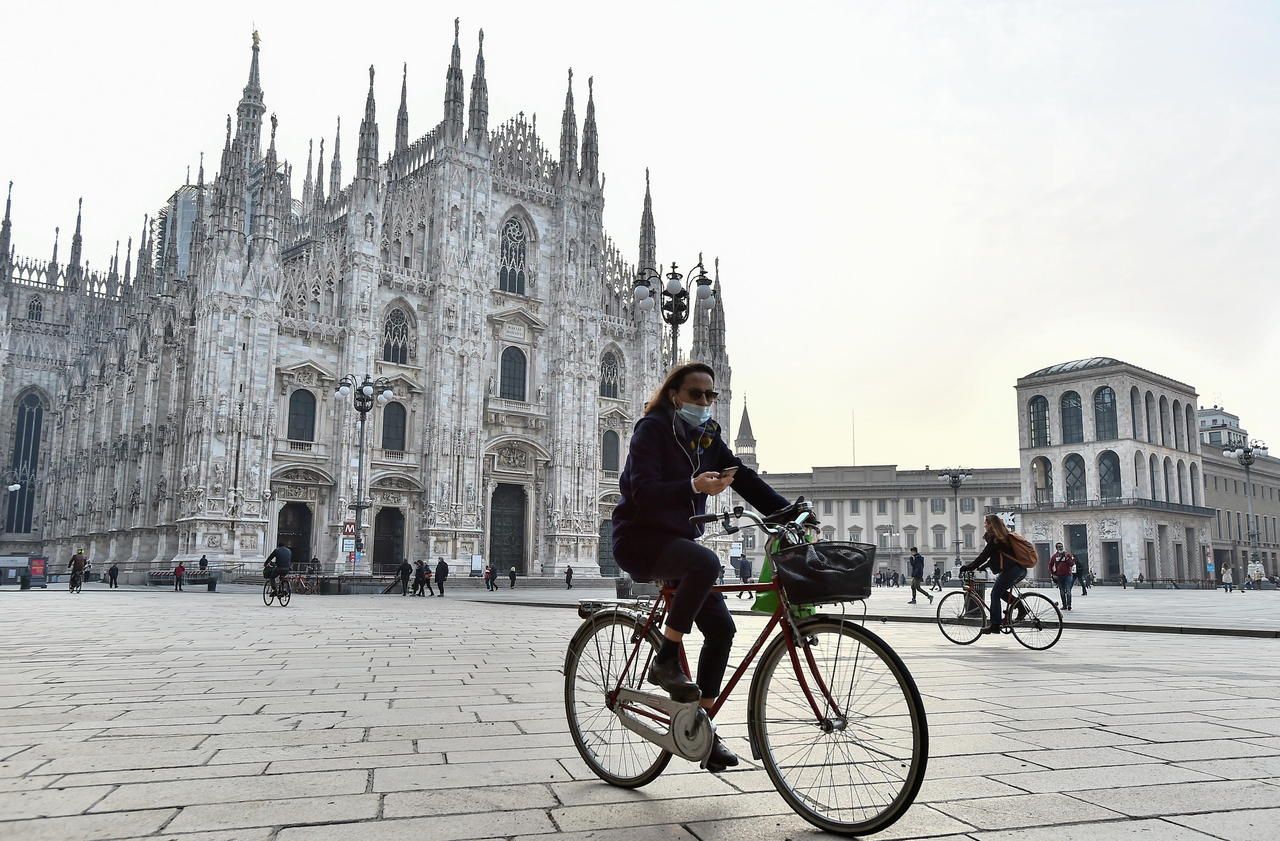In dispersed order facing the Covid-19!
The rebound of the epidemic does not spare any European country, and each of them adapts its strategy.
Since the start of the school year, as the curves of new cases progress, announcements of restrictive measures follow one another from north to south and from east to west of the continent.
Until the most spectacular: from this Wednesday evening midnight, all of Ireland is reconfigured.
A first for a country in the European Union.
Among the main states, Spain was the first to face the beginnings of the “second wave” at the end of August.
Several cities, including Madrid, have been placed under cover since the start of the school year.
A kind of light confinement: their inhabitants are not obliged to stay at home as in the first wave, but they can only leave the city for reasons of first necessity.
Curfews could now be imposed as in several French metropolises, warned the Spanish Minister of Health, Salvador Illa on Tuesday.
As for bars and restaurants, open until 11 p.m. in the capital, they must keep their doors closed since October 15 in Catalonia.
READ ALSO>
Covid-19 rebound: why is Spain the most affected country in Europe?
These variations can be explained by the fact that the Spanish regions are responsible for health.
This regularly gives rise to arm wrestling with the central government.
The president of the autonomous community of Madrid had, for example, lodged an appeal against the putting under bell of her city.
"Much closer to a second confinement than we want to think"
Same administrative pattern in Italy, where the regions also have a large margin of initiative.
On Sunday, Prime Minister Giuseppe Conte contented himself with a few rather expected announcements, such as the closure of restaurants no later than midnight and the obligation of 75% of teleworking to officials, returning the responsibility to impose a curfew on Locally elected.
In Lombardy, it will be from 11 p.m. to 5 a.m. from Thursday.
Campania should follow the next day.
In Germany, the canton of Berchtesgaden (Bavaria) was reconfigured on Tuesday, with the closure of schools and non-essential businesses.
"We are much closer to a second lockdown than we want to think", warned the Prime Minister of Bavaria, Markus Soëder.
In the worst-affected areas of Germany, private gatherings are limited to 10 residents or two households.
The maximum gauge increases to six people in the United Kingdom, and private meetings inside have been banned altogether in London since Saturday.
In France, this “rule of six” is only a recommendation.
The Czech Republic, the most affected country
These measures depend of course on the epidemiological situation in each country.
The Czech Republic, which has the most new daily cases reported to the population since the beginning of October, closed schools, bars and restaurants on October 14.
A sort of re-containment that does not speak its name.
But everything does not always appear proportionate: Ireland has decided to confine its population while the country has 40% fewer newly positive people than France, for example (234 against 381 new cases per 100,000 inhabitants per day, based on data from the European Center for Disease Prevention and Control).
This is also explained by the fact that the French government decided this time to stagger the measures department by department, in order to avoid a curfew or even a national re-containment.
Newsletter - Most of the news
Every morning, the news seen by Le Parisien
I'm registering
Your email address is collected by Le Parisien to enable you to receive our news and commercial offers.
Learn more
All these variations "do not surprise" epidemiologist Pascal Crepey, for two reasons.
“The first is that we do not currently have a miracle recipe for fighting this pandemic.
If we knew the effective measure every time and in all situations, it would suffice to use it, ”develops this researcher from the Parisian School of Advanced Studies in Public Health.
"It is essential to adapt the measures to the local context"
The other reason comes from the differences in behavior of the inhabitants depending on the country.
Without falling into clichés, the inhabitants of Latin countries, especially Spain, themselves admit having a richer social and family life.
"People are close, they like to meet," recently summed up Ildefonso Hernández Aguado, former director general of public health in the Spanish government.
READ ALSO>
Covid-19: is collective immunity just a fad?
Conversely, in the Nordic countries including Sweden, "we are not very Latin nor very tactile from the start, but at the same level as the Italians when they respect social distancing measures", testifies with a smile Magnus Falkehed , journalist for the daily Expressen.
"This is why it is essential to adapt the epidemic control measures to the local context of each country, and even each region of the different countries", judges Pascal Crepey.
VIDEO. Covid-19 in France: new departments will switch Thursday to maximum alert zone
Tourism and passenger travel can also impact the situation in the most popular areas.
If it remains the second European country (behind Serbia) to deplore the fewest new cases, Greece recorded a record of contaminations in 24 hours on Tuesday.
667 people tested new positive.
For the moment, the authorities insist on the need to be "particularly careful", to wear a mask and to avoid gatherings, but they do not rule out taking firmer measures in the coming days.

